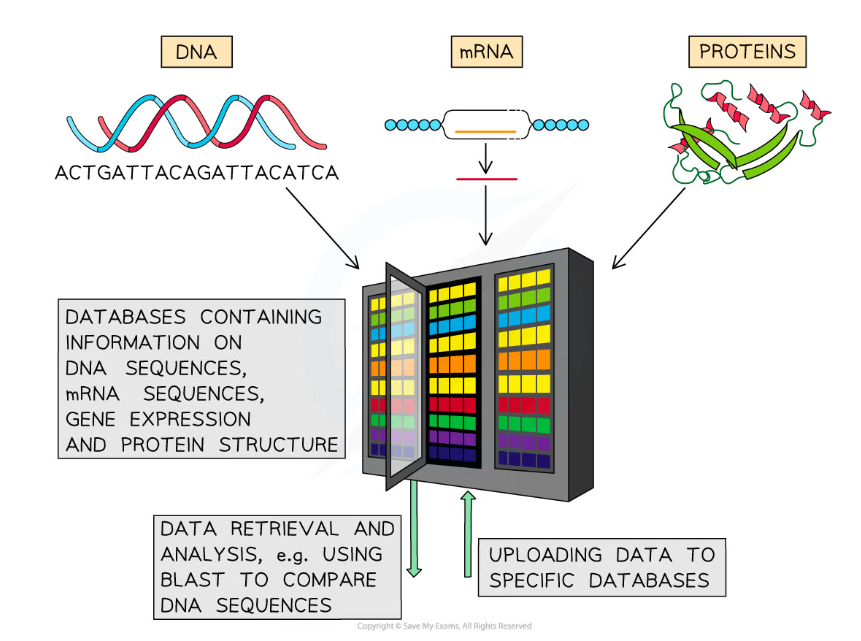- 翰林提供学术活动、国际课程、科研项目一站式留学背景提升服务!
- 400 888 0080
Edexcel A (SNAB) A Level Biology:复习笔记8.2.8 Personalised Medicine
Personalised Medicine
- Personalised medicine involves the development of targeted drugs to treat a variety of human diseases in individuals with different genotypes
- Such drugs can be tested on synthetic tissues; groups of cells cultured in a lab that are genetically identical to certain groups of patients
- Information gathered from genome projects like the Human Genome Project (HGP) can be used to develop genomic medicine, which uses information about the genes to design medical treatments
- The HGP involved the sequencing of the entire human genome
- The information gained during the HGP is stored in databases, within which genes that code for certain proteins can be found and analysed
- Knowing the sequence and structure of proteins involved in disease allows the development of drugs that target specific proteins
- E.g. if an enzyme is involved with disease, a drug that acts as an enzyme inhibitor can be developed
- By combining information about the genome with other clinical and diagnostic information, patterns can be identified that can help to determine an individual's risk of developing disease
- Genetic screening allows individuals with a high chance of developing specific diseases to be identified and means that preventative measures can be taken e.g.
- Certain genetic mutations are known to increase the risk of an individual developing breast cancer, so those who know that they have such a mutation can have surgery in advance to reduce their risk
- An individual may be able to make certain life choices regarding diet and lifestyle based on knowledge of their genetic risk of cancers and heart disease
- Genetic screening allows individuals with a high chance of developing specific diseases to be identified and means that preventative measures can be taken e.g.
- Doctors can also use an individual's genome to work out how well they might respond to specific treatments, allowing treatments to be selected on the basis of an individual's genotype

Databases can be used to store information on gene and protein sequences that can then be used to design drugs or determine the most effective treatment for a patient
Social, moral and ethical issues
- Increased research costs for drug companies could increase the price of new medicines and mean that only wealthier people have access to personalised medicine
- There is fear that insurance companies and employers may use personalised medical data against individuals to unfairly discriminate against them e.g. insurance costs might increase for people with certain genetic variants
- Some patients may be refused personalised medicine if it is not predicted to be that effective for them, even if there are no other treatment options
- Knowing that the only medication available may not work could be very distressing for the individual being treated and their families
转载自savemyexams

早鸟钜惠!翰林2025暑期班课上线

最新发布
© 2025. All Rights Reserved. 沪ICP备2023009024号-1








